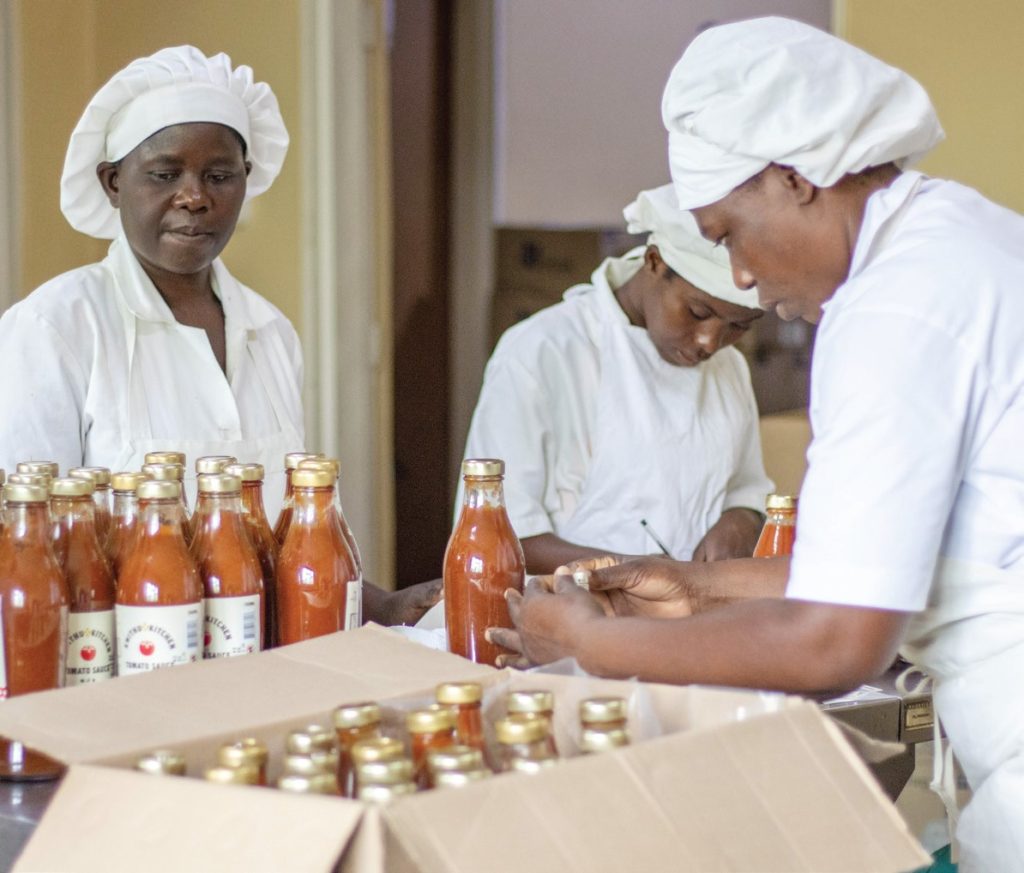Creating jobs for youth, women: Kwithu Kitchen’s tale
Kwithu is a Tumbuka word which means ‘our home.’
Kwithu Kitchen founder Dr Anna Msowoya-Keys is a proud Malawian who gave it a native name.

“I started Kwithu as a community-based organisation with 20 women in 2004 after seeing how most families were struggling with HIV and Aids which wiped out many caretakers and left children orphaned,” she says.
Due to the epidemic, it was mostly the elderly taking care of the children and many people lacked basic necessities like food and education. She felt sorry for how children in her community were becoming malnourished.
The community organisation started feeding 20 children.It now provides for 350 children in its vicinity.
The organisation operates from a permanent community centre and provides a wide range of essential social, health, educational and economic empowerment services to a population of more than 23 000.
The services include early childhood development programme that runs throughout the academic year and a feeding initiative that runs every Monday, Wednesday and Friday.
Kwithu Kitchen was established in 2013 to preserve the tomatoes used in the feeding programme and generating income for the operations of the community-based organisation (CBO).
“We started with processing one tonne per week. Now we process two to four tonnes a week, creating a market for tomato farmers,” Keys explains.
Kwithu Kitchen has invested in agricultural extension to ensure that the growers understand good agricultural practices to produce high-quality crops.
It processes tomato puree, chopped tomatoes, tomato jam, tomato sauce and Kambuzi hot chili sauce.
Kwithu has added honey to their offerings after noticing the high demand.
“We started with two tonnes of honey, later 12 tonnes and now we buy 50 tonnes,”says Keys.
Kwithu produces Nyika Premium Honey from communities surrounding Nyika National Park and Wild Mountain honey from Mzimba, Karonga and Nkhata Bay.
The charity plan to purchase 80 tonnes of honey this year and invest more in training farmers in beekeeping and giving women bee-keeping clubs a starter-pack comprising smokers, beehives and bee suits.”
Kwithu Kitchen employs 30 people and and 1 000 honey producers.
The social enterprise boasts a market for 3 000 smallholder farmers, with 60 percent being women.
It is one of the beneficiaries of the Financial Inclusion and Entrepreneurship Scaling (Fines) Project conceived to improve access to finance.
This comes in response to one of the hurdles faced by medium and small micro-, small and medium-sized enterprises (MSMEs), which do not have the assets banks requires as collateral for high-interest loans.
“The high interests often discourage people, especially women. The interest on Fines loans is much lower compared to normal loans. What I like most about the loan is that they support us with consultants who help us in the whole process.
Malawi Agricultural and Industrial Investment Corporation (Maiic) acting chief executive officer Lloyd Banda says to qualify for the loan, a business needs to be registered with the Registrar General and be compliant with Malawi Revenue Authority dos and don’ts.
The loan seeks to support more businesses in value addition.
“By supporting Kwithu Kitchen, they are creating a market for cooperatives, so we look at such linkages when supporting MSMEs,” says Banda.
Fines project manager Ralph Tseka says creating jobs and a market for cooperatives also improves livelihoods of target populations, especially women who struggled to have access bank loans to grow their businesses and provide for their families.
“The MSMEs who have accessed the loan must remember that they have an obligation to pay back the loan so that more people can access the facility,” Tseka explains.
The five-year-project ends in 2025.
It is implemented by the Government of Malawi through the Reserve Bank of Malawi’s Project Implementation Unit.
The government received an $86 million from the World Bank to expand access to financial services, promote entrepreneurship and capabilities of MSMEs amid the Covid-19 emergency. The project has since disbursed more than K47.3 billion to MSME that benefit 40 887 people. They include 28 888 women, 4 840 men and 7 159 youths.






One Comment